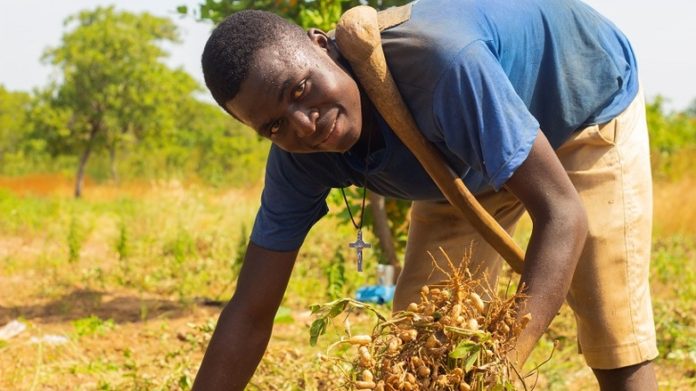2030 Global Goals : “To achieve the SDGs, we need to engage businesses and investors in all parts of the world. Together, let us inspire action in the areas that stand to gain the most from sustainable development.”
Introduction
In 2015, the international community agreed on an ambitious set of 17 goals for “Our Planet and the People.” These 17 goals popularly known as the Global Goals for Sustainable Development (“2030 Agenda”) were agreed to by 193 countries in September 2015 and 2030 was set as the year for them to be achieved.
These goals are unique in the sense that they set out 169 specific targets which are in themselves broad and interdependent making them unprecedented in scope and ambition. The goals encompass economic, social, environmental dimensions ranging from poverty, hunger, education, global warming, gender, water, sanitation, energy, urbanization and social justice.
Collectively, these goals are meant as a call to countries to promote prosperity whilst protecting the planet.
Identifying Global Challenges in Emerging Markets and Developing Economies (EMDEs).
In order to achieve the SDGs, there is a need to identify and address the world’s pressing public policy and development concerns. Every country is faced with one challenge or another which serves as a barrier to the attainment of the global goals.
These challenges are however felt more in the Emerging Markets and Developing Economies (EMDEs) like Ghana. These challenges include issues relating to corruption and illicit financial flows; gender inequality; poverty; poor and/or lack of quality education; infrastructure deficits; climate change; illegal migration; health related challenges; sanitation issues; hunger; water related challenges; conflict and violence, social injustice and the like.
Indeed, these challenges are prevalent and do remain. Their existence shows that the idea of changing the world is simply a matter of choice.
Should there be any hope of change, it would first mean that a commitment is made towards identifying these challenges after which resources and passion are channeled into solving these challenges in a pragmatic manner.
In doing so, these challenges would then be perceived as opportunities rather than negative situations. Global challenges, according to policy makers around the world, create unprecedented investment opportunities for investors.
These global challenges can then be used as a justifiable basis to pool and unlock massive investment opportunities which are much needed to tackle the world’s most pressing development issues of our time.
It is not enough to complain about challenges, but rather it is commendable to identify them and further use them as stepping stones to develop solutions that would bring about long-lasting change. Unless investments are made in human capital, jobs and improving the quality of life and incomes of populations in countries especially EMDEs, the existing challenges will be exacerbated.
Leveraging on the Global Goals to unlock massive investment for development
To achieve the SDGs by 2030, it has been projected that an estimated 4.5 trillion per year in additional investment and finance for EMDEs would be required to be mobilized. This would mean taking active steps to assess global efforts and innovations by international investors, multilateral development banks and policy makers to unlock massive investment opportunities.
Indeed, EMDEs are said to have the potential to power global growth over the next two (2) decades.
This has led to a growing interest amongst private investors who are increasingly adopting sustainable investment practices.
The World Bank has also embarked on an agenda aimed at helping to catalyze “trillions” needed to achieve the SDGs.
Indeed, a concerted and coordinated action is required by investors, financiers, regulators and development institutions so as to unlock investments into EMDEs and further achieve the SDGs.
These investment avenues could be assessed through strengthening international and national financial systems; leveraging public finance; strengthening national financing strategies; crowding-in the private sector in financing development; mobilizing all sources of finance and increasing their combined impact; strengthening multi-lateral development bank’s capacity to catalyze finance; harnessing technology and disruptive business modules; creating development finance partnerships and building multi-stakeholder platforms amongst others.
Countries like Ghana can be innovative so as to take the resources and knowledge available and turn some of these goals into actual projects that can be marketed to attract investment opportunities.
The investment focus should be that of impact and sustainable investment. This would ensure that investment is done, managed and monitored with the intent to make positive impact. To achieve this, governments must actively implement changes to improve their investment climate.
This can be achieved through adopting best practices; putting in place frameworks that enable markets to function; promoting competition, causing other market players to up their game; building capacity and skills that open new market opportunities and lastly focusing on climate and gender smart investments.
Conclusion
In effect, policy actions of Ghana must be married with investment partnerships so as to build resilience aimed at growing the private sector for purposes of investing in people and the environment.
The SDGs cannot be achieved without mobilization of domestic resources and increased efficiency in spending resources.
This calls for effective monitoring of resource use and also doing all that is necessary to clamp down on all forms of corrupt practices. The SDGs are a very important set of goals which need to be achieved in order to guarantee prosperity for the planet and the people of the planet.
The world would be a better place if these goals are achieved by the set target year of 2030.
More so, the deplorable state of most EMDEs would become a thing of the past if the SDGs and its achievement is taken seriously. The challenges of today’s world should not remain as something to brood over.
Rather, they should be seen as opportunities that can be harnessed in order to unlock massive investment so as to produce effective solutions. The Agenda 2030 is possible! It is thus necessary to partner for development by leveraging on the SDGs.
Reginald Nii Odoi


